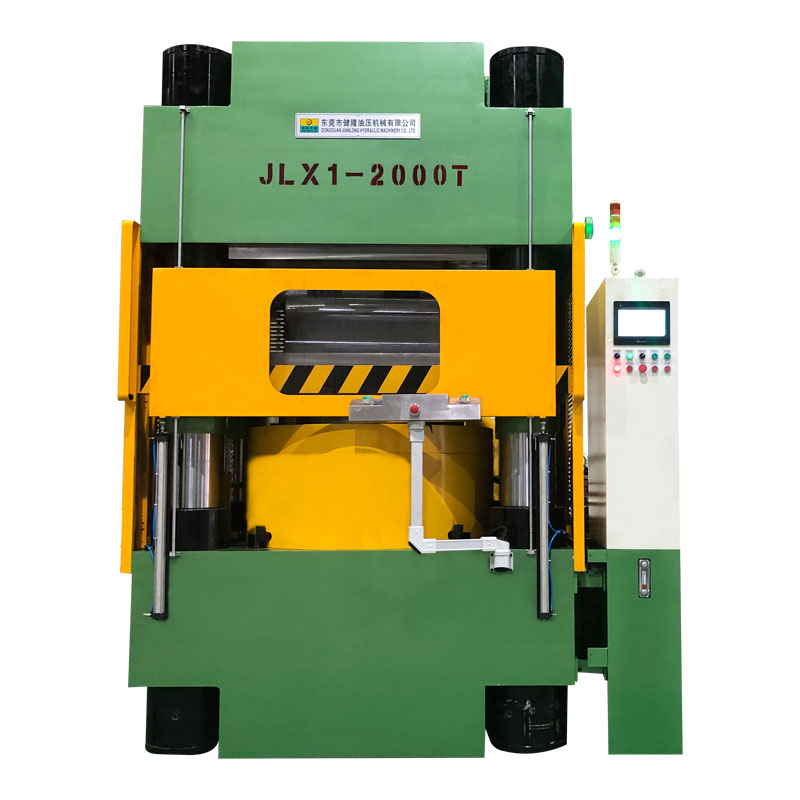Working principle of hydraulic press
People use the hydraulic press to smash unusual items and become famous on the Internet, under the hydraulic press everything seems to be easily squeezed and burst, from soft balls to hard diamonds, but the time spent is different, the hydraulic press is "calmly" crushing everything. If you have a hydraulic press around you, or you have seen a hydraulic press in the video, then you will find that the equipment itself is not large, and even very lightweight, but this "four or two dial thousands of pounds" effect is gathered in a small instrument.
The hydraulic press works by applying pressure to the fluid in a small chamber using a plunger. The force generated by this pressure causes a greater force to be used in the master cylinder, and then the master pump will press against any object in the lower plate. Presses operate on liquid pressure according to PASCAL's theory, which states that the pressure will remain constant. Hydraulic press has important uses in the industrial field, the following will give you a brief introduction.
2. Hydraulic press is used in the industrial field
1) Agriculture:
Since farmers have worked with plants, agriculture may not be the first industry where you need a hydraulic press. But they need a lot of large farm equipment to do business. They use hydraulic presses to perform maintenance tasks such as the separation of rusty parts, the straightening of bent parts, and the compression of unwanted materials. They also use it to press out the bearings of the equipment.
2) Auto parts manufacturing:
Car manufacturers have many uses for hydraulic presses. The main use is in the manufacture of automotive parts. They can use hydraulic presses to make large parts, such as body panels and brake pads, as well as smaller parts, such as clutches, and even make more complex car parts. Moreover, manufacturers can also use them to assemble car parts.
3) Parts manufacturing:
The automotive industry is not alone in finding hydraulic presses useful. For example, manufacturers can use presses to form the panels of washing machines, microwave ovens, and dishwashers. As with automotive manufacturing, they also use hydraulic presses to assemble parts, such as thermostat housings, light switches, and equipment parts.
4) Car crushing:
The crusher is the other end of the car's service life. Indeed, the heart of a car's crushing system is a hydraulic press, which makes sense considering how much force the main piston can generate. On the car crusher, the hydraulic press lowers the plate at a steady rate to provide a uniform compression force, thus making the storage and transportation of the car easier.
5) Swordmaking:
Although it is a niche market, hydraulic presses can be used for sword making and general forging. As with car crushers, even the forging required to make swords and knives requires even pressure. The hydraulic press operates the motherboard at the slow, steady speed needed to flatten the blade of the sword or knife.
6) Milling:
Factories that produce powder products usually use hydraulic presses. For example, food manufacturers use hydraulic presses to produce fat-free cocoa powder. They use chocolate wine to remove fat. Then, they turned the liquid into a powder. Cosmetics manufacturers use hydraulic presses for their powders. In medicine, they use special presses to press the powder into pills.
7) Concrete test:
Concrete naturally has many uses in the construction industry. Builders turned to concrete for its strength. Manufacturers can use high-speed hydraulic presses to test the tensile properties of solidified concrete. Running these tests will produce data related to a predefined tensile softening, known as tensile strength. Manufacturers use this data to adjust specific formulas accordingly.
8) Ceramic production:
Hydraulic presses are also useful in cement production. In fact, manufacturers can replace traditional hot kilns by using a hydraulic press at room temperature. They apply the low pressure needed to compress the ceramic into the target shape. They can produce cement, bricks, bathroom tiles and related products in less time than it takes to fire a kiln.

Contact: Jessie
Phone: 18988729072
E-mail: lifuyan45@gmail.com
Whatsapp:+8618988729072
Add: Guangyi Industrial Park, No.2 Jinfu West Road, Tanglip, Liaobu Town, Dongguan City, Guangdong Province, China
We chat
